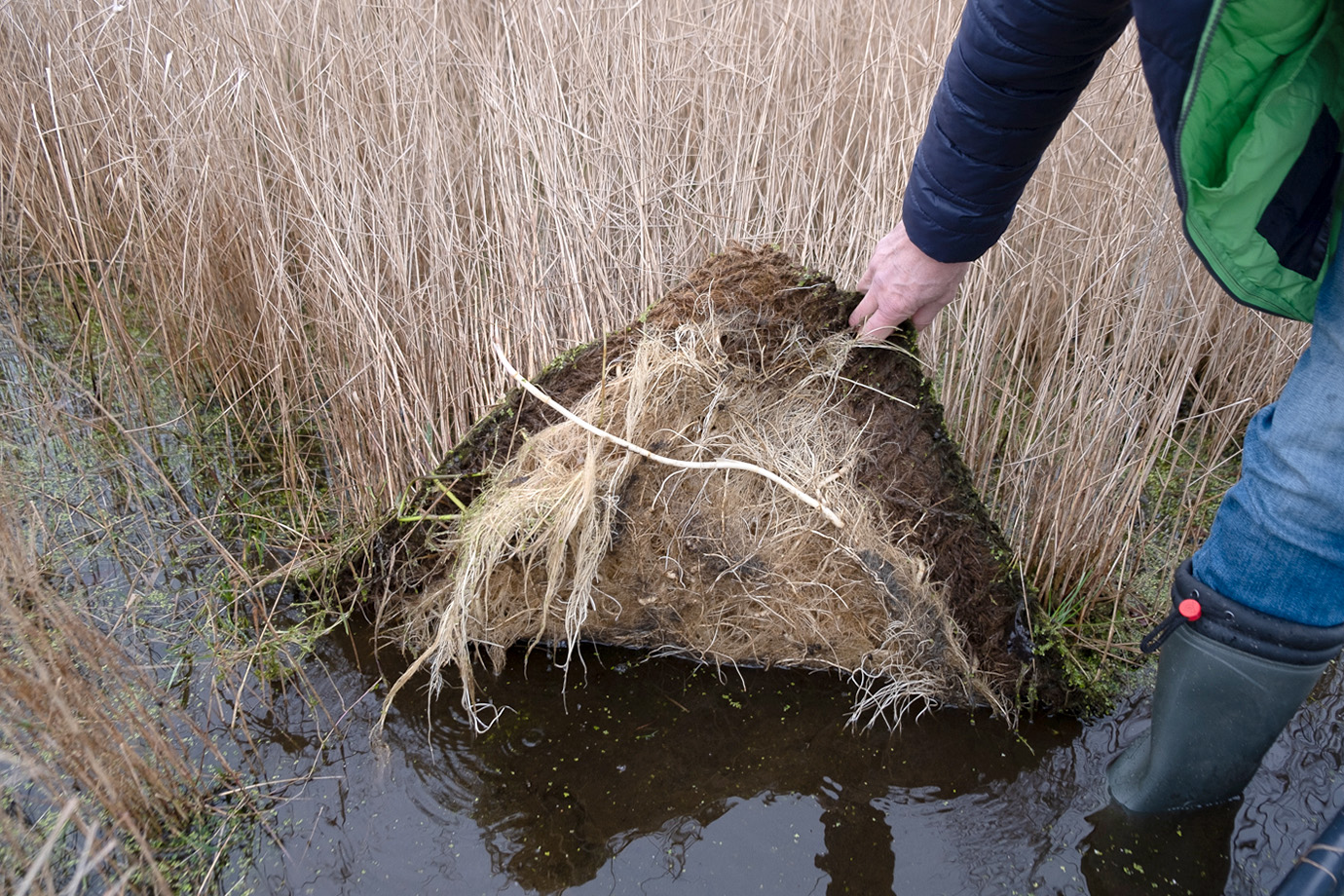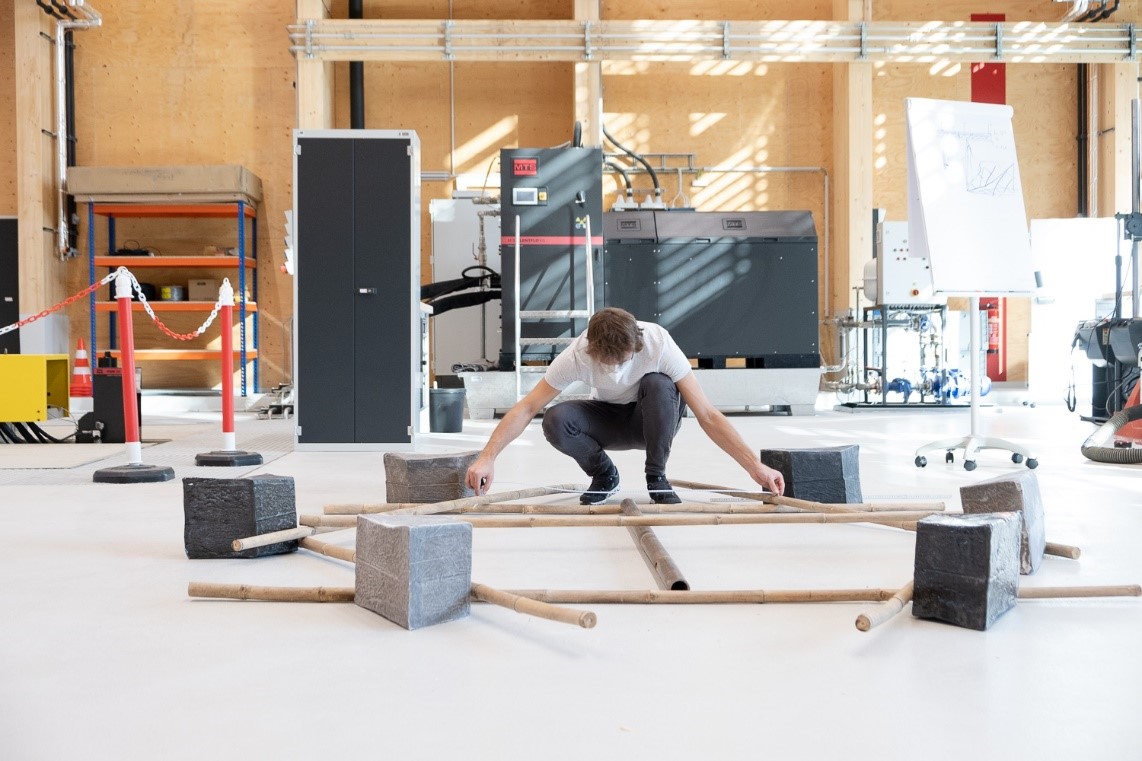Green Water – The renaturation of Hamburg’s canals with plant-bearing floating islands will be launched with an interactive event
With the support of the Fraunhofer WKI, Beate Kapfenberger and Martha Starke from the design studio “morgen.” are infusing new life into the Fleete (canals) of Hamburg’s inner city. Once filled with boats, sailors and wares from all over the world, the waterways are now largely unused and devoid of vegetation. Together with researchers from the Fraunhofer WKI, the designers have developed floating islands which can carry plants and which are made from a lightweight material that consists entirely of renewable raw resources. Through this project, a new form of green space will be created in the city: valuable biotopes, recreational spaces and meeting places on the water. Interested parties can help to plant and launch the islands on 1st June 2022 June 21, 2022.


The floating islands can improve the quality of both air and life in the city. Appropriate planting will provide food, reproduction and refuge biotopes for fish, birds, insects and other small creatures in high-density urban areas.
The floating elements are constructed from residual materials such as wood chips and hemp hurds. A fungal mycelium, which grows through the residual materials, provides shape and strength. The construction is so light that the island, including the vegetation, floats on the water. “Fungi are absolute all-rounders and serve as the foundation for the innovative floating objects in our project. They not only hold everything together but also facilitate the shaping. Thanks to the fungal mycelium, we can let the material grow into virtually any shape. As a result, the design and planting of the islands can be very easily adapted to the biotope. Through the passive irrigation, valuable habitats for numerous insects and other creatures are also created under water, in the root system of the plants. The islands are intended to break through the boundary between the elements of air and water and to contribute towards the renaturation of our man-made waterways,” reports Christoph Pöhler, a scientist at the Fraunhofer WKI.
“In contrast to conventional floating biotopes, our green islands are constructed entirely from renewable raw materials. The flexibly combinable system of individual triangular islands enables an aesthetic diversity of places to hide, rest, feed, spawn and nest for a multitude of different species. In order to make our dream of green waterways and canals come true, we tested various hydrophobing methods on mycelium materials,” explains Martha Starke, designer at “manufaktur morgen”. The islands should hereby be protected against strong water absorption and, consequently, premature biological degradation.
The project also serves society in a much broader context: The floating islands illustrate the performance capabilities of modern bio-materials. As eye-catching exhibits in public spaces, they emphasize that materials made from renewable raw resources can now meet the most stringent requirements. The project is therefore contributing towards raising awareness regarding sustainable material solutions and ensuring that they are used more routinely in product development in the future.
With the floating islands, new utilization possibilities arise for bodies of water as areas for experience and recreation. This could be interesting for the tourism, gastronomy and event sectors.
Interactive event
Interested parties can now themselves contribute to the success of the project. On 1st June 2022 June 21, 2022, the project team will be holding a public interactive event at Hamburg’s Bleichenfleet, at which participants will collectively plant 16 floating islands and launch them into the water. The event starts at 11 a.m. Meeting point: At the Bleichenfleet (between Michaelisbrücke and Ellerntorsbrücke).
Further information on the event
Press event
Journalists will have the opportunity to ask questions about the project to scientist Christoph Pöhler and designer Martha Starke on 2nd June 2022 June 22, 2022. The project team will be available for talks at 11 a.m. in the Bleichenfleet.
Design conference
Furthermore, the project team will present its experiences at the design conference of the Fraunhofer Network “Science, Art and Design” on 6th July 2022 in Berlin. The event is aimed at specialists from design practice and design research.
Last modified:
 Fraunhofer Institute for Wood Research
Fraunhofer Institute for Wood Research